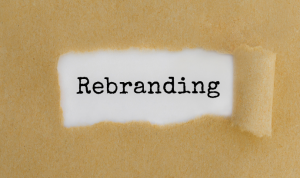In Zagreb, it is co-organized by the Abeceda komunikacije agency and Oikon, the Institute for Applied Ecology, i.e. The first ESG Meet-up was held at the Oikonova Institute for Sustainability and Climate Resilience. It is an event within the Better Company project, which combines the world’s best practices of sustainable development and the communication industry.
“The lack of sustainable initiatives can negatively affect the competitiveness of companies in today’s business environment, especially considering the high awareness and expectations of millennials and new generations about social responsibility. In order to help companies cope better with these circumstances, we launched Better Company, a consulting platform that provides the market with comprehensive support in the implementation and communication of sustainable business, said Marina Bolanča , director of the ABC communication agency, in her opening address.
Maja Malić , advisor at the Croatian Employers’ Association’s Association of Food Industry and Agriculture for sustainable development and socially responsible business, joined on behalf of the Croatian Employers’ Association. As she pointed out, investing in ESG is important because it ensures more favorable financing and a better market position in the long term.
“It increases the company’s reputation, contributes to employee satisfaction, attracts quality partners and investors, and ensures sustainable growth and business development. “HUP supports companies on their path towards sustainability by organizing conferences, workshops, panels and education,” she said.
Regulatory framework
Ana Zorić , Director of the Directorate for the Economy and Financial System at the Ministry of Finance, emphasized that doing business in accordance with sustainable development goals helps combat global climate and social challenges and ensure a better future for generations to come. As part of the presentation, she explained the new regulatory changes and guided the audience through the European framework for sustainable financing, including an overview of legislative changes in the Republic of Croatia related to sustainability reporting and other relevant related topics.
“Scientific reports show unprecedented climate change around the world. Higher temperatures and more extreme weather conditions are causing enormous costs to the European Union economy and affecting countries’ ability to produce food. Over the past 40 years, extreme weather and climate events have caused more than €487 billion in financial losses in the EU. From 1980 to 2020, more than 138,000 people in the EU lost their lives due to extreme weather and climate events. The average economic damage from floods in Europe exceeds €5 billion per year, and the annual economic damage from forest fires in the EU is around €2 billion. These facts underline why a green transition is necessary,” she stressed on that occasion.
What does that look like in practice?
Andreja Pavlović , head of the Institute for Sustainability and Climate Resilience, agreed that the green transition is key to reducing the impact of climate change, protecting the environment and ensuring a sustainable future for the economy and society. In her part of the presentation, she devoted herself to reviewing the regulatory requirements of CSRD and ESRS, with an emphasis on sustainability management and reporting and the challenges that accompany them in practice. She introduced participants to key concepts such as the value chain, due diligence, and dual materiality.
“CSRD/ESRS places a strong emphasis on managing and reporting on significant impacts, risks and opportunities through policy disclosures, targets, indicators and measures. Companies need sustainability reporting teams, and they also need a scientific basis for setting specific environmental sustainability goals. A certain period of adaptation is also required for the implementation of the CSRD/ESRS requirements, and the sooner this is started, the easier the adaptation will be. All sustainability reports will in future be published on a single European access point, which will make it much easier for everyone interested in these reports to access the information, which has not been the case so far. It will also be easier to compare reports and assess the relevance of published information. In the long term, any changes that follow, assuming that the audit of the reports will be carried out by environmental, social and governance experts who will be able to assess the methodological robustness of the double materiality assessment, should enable better management and reporting of material sustainability issues, she explained.
Reputation measurement
Marina Bolanča also presented a strategic approach to ESG communication, specifically the development, implementation and performance measurement of ESG strategies that integrate environmental, social and management factors. She paid special attention to measuring the impact of ESG initiatives using relevant metrics and tools.
“ESG is an investment. Morningstar’s 2021 analysis. showed that millennials, Gen Xers and Baby Boomers have similar preferences for sustainable investments. With the Better Company project, using internal tools, knowledge and expertise, we help set and then achieve sustainability goals and build a reputation as a responsible and transparent organization. We are particularly focused on reputation monitoring, sustainability reporting and successful communication with stakeholders. “In short, we provide solid tools for strengthening, but also measuring, brand reputation,” added Bolanča.







